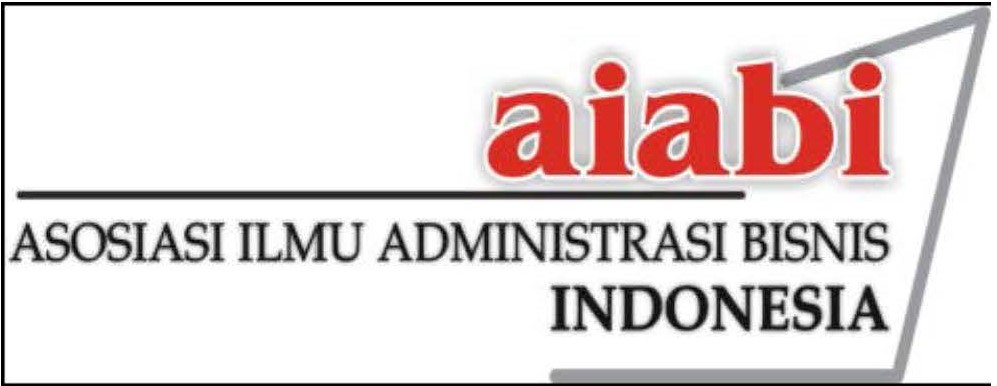PENGARUH ARTIFICIAL INTELLIGENCE TERHADAP CUSTOMER EXPERIENCE (STUDI PADA PENGGUNA GOJEK BANDUNG, JAWA BARAT)
Abstrak
Artificial Intelligence (AI) allows marketers to differentiate their consumers into different personas and understand what motivates consumers in purchasing decisions so that marketers use AI to identify and predict consumer behavior, and through this information marketers are able to build unique experiences for consumers. This study tests and measures the effect of AI on customer experience by using simple regression analysis with four dimensions of AI: mechanical intelligence, analytical intelligence, intuitive intelligence and empathetic intelligence on the four dimensions of customer experience: immersion, flow, cognitive fit and emotional fit with a four-point Likert scale. Based on the results of study on 116 respondents, it it known that both AI and Gojek's customer experience are good and there is a significant effect of AI on customer experience.
Artificial Intelligence (AI) memungkinkan pemasar untuk membedakan konsumennya menjadi persona yang berbeda dan memahami apa yang memotivasi konsumen dalam keputusan pembelian sehingga pemasar menggunakan AI untuk mengidentifikasi dan memprediksi perilaku konsumen, dan melalui informasi ini pemasar mampu membangun pengalaman unik bagi konsumen. Penelitian ini bertujuan untuk menguji dan mengukur pengaruh AI terhadap customer experience dengan menggunakan analisis regresi sederhana dengan empat dimensi AI: mechanical intelligence, analytical intelligence, intuitive intelligence dan empathetic intelligence terhadap empat dimensi customer experience: immersion, flow, cognitive fit dan emotional fit dengan skala Likert empat poin. Berdasarkan hasil penelitian terhadap 116 responden, didapatkan bahwa baik AI maupun customer experience Gojek dinilai baik dan terdapat pengaruh yang signifikan AI terhadap customer experience.
Kata Kunci
Teks Lengkap:
PDFReferensi
Abadi, R. R., Nursyamsi, I., & Syamsuddin, A. R. (2020). Effect of Customer Value and Experiential Marketing to Customer Loyalty with Customer Satisfaction as Intervening Variable (Case Study on Gojek Makassar Consumers). The Asian Journal of Technology Management, 13(1), 82–97.
Adriansyah, D., & Saputri, M. E. (2020). Pengaruh Promosi Penjualan Terhadap Kepuasan Pelanggan Melalui Keputusan Pembelian Sebagai Variabel Intervening pada Pengguna Go-Food di Kota Bandung. Journal of Entrepreneurship, Management and Industry (JEMI), 3(3), 123–128.
Arifin, S. H. (2019). Pemasaran Era Milenium. Yogyakarta: CV. Budi Utama.
Bagdare, S., & Jain, R. (2013). Measuring retail customer experience. International Journal of Retail & Distribution Management, 41(10), 790–804. https://doi.org/10.1108/IJRDM-08-2012-0084
Behare, N. (2018). A Theoretical Perspective on Customer Experience (CX) in Digital Business Strategy. International Conference on Research in Intelligent and Computing in Engineering (RICE), (Cx), 1–7. https://doi.org/10.1109/RICE.2018.8509079
Fachrurrozy, M., & Rachmawati, I. (2017). Analisis Kualitas Pelayanan Pada Gojek Bandung Analysis of Service Quality At Gojek Bandung. E-Proceeding Of Management, 2506–2510.
Huang, M., & Rust, R. T. (2018). Artificial Intelligence in Service. Journal of Service Research, 2–6. https://doi.org/10.1177/1094670517752459
InfoKomputer. (2019). Begini Cara Gojek Memanfaatkan Teknologi Artificial Intelligence. Retrieved March 1, 2020, from https://infokomputer.grid.id/read/121840841/begini-cara-Gojek-memanfaatkan-teknologi-artificial-intelligence?page=all
KOMINFO. (2018). Artificial Intelligence Sebagai Penggerak Industri 4.0 dan Tantangannya Bagi Sektor Pemerintah dan Swasta. Retrieved August 5, 2020, from https://mti.kominfo.go.id/index.php/mti/article/view/144
Liputan6. (2019). Kontribusi Mitra Gojek untuk Perekonomian Bandung Tembus Rp 2,1 Triliun. Retrieved August 4, 2020, from https://www.liputan6.com/regional/read/3997794/kontribusi-mitra-gojek-untuk-perekonomian-bandung-tembus-rp-21-triliun
Mccoll-kennedy, J. R., Zaki, M., Lemon, K. N., Urmetzer, F., & Neely, A. (2019). Gaining Customer Experience Insights That Matter. Journal of Service Research, 22(1), 8–26. https://doi.org/10.1177/1094670518812182
Mogaji, E., Soetan, T. O., & Anh, T. (2020). The Implications Of Artificial Intelligence on The Digital Marketing of Financial Services to Vulnerable Customers. Australasian Marketing Journal. https://doi.org/10.1016/j.ausmj.2020.05.003
Norrahmiati, Anwar, K., & Ernawati. (2020). Faktor-Faktor Yang Mempengaruhi Niat Generasi Z Untuk Menggunakan Kembali Aplikasi Transportasi Daring. J-MKLI (Jurnal Manajemen Dan Kearifan Lokal Indonesia, 4(1), 44–57. https://doi.org/10.26805/jmkli.v4i1.91
Parise, S., Guinan, P. J., Kafka, R., College, B., Hall, B., Park, B., … Area, B. (2016). Solving The Crisis of Immediacy : How Digital Technology Can Transform The Customer Experience. Business Horizons, 59(4), 411–420. https://doi.org/10.1016/j.bushor.2016.03.004
Prentice, C., & Nguyen, M. (2020). Journal of Retailing and Consumer Services Engaging And Retaining Customers With AI and Employee Service. Journal of Retailing and Consumer Services, 56(June). https://doi.org/10.1016/j.jretconser.2020.102186
Ribamar, J., Molina, G., & Losada, M. (2020). A Bayesian Examination of The Relationship of Internal and External Touchpoints in The Customer Experience Process Across Various Service Environments. Journal of Retailing and Consumer Services, 53(October 2019), 102009. https://doi.org/10.1016/j.jretconser.2019.102009
Russel, S., & Norvig, P. (2010). Artificial Intelligence: A Modern Approach. New Jersey: CreateSpace Independent Publishing Platform.
Shahid, M. Z., & Li, G. (2019). Impact of Artificial Intelligence in Marketing : A Perspective of Marketing Professionals of Pakistan. Global Journal of Management and Business Research: E-Marketing, 19(2), 3–4.
Singarimbun, M., & Effendi, S. (2006). Metode Penelitian Survei. Jakarta: LP3ES.
Stein, A., & Ramaseshan, B. (2016). Towards The Identification of Customer Experience Touch Point Elements. Journal of Retailing and Consumer Services, 30, 8–19. https://doi.org/10.1016/j.jretconser.2015.12.001
Top Brand Award. (2020). Top Brand Index Jasa Transportasi Online. Retrieved August 5, 2020, from https://www.topbrand-award.com/top-brand-index/?tbi_find=Gojek
Verhoef, P. C., Lemon, K. N., Parasuraman, A., Roggeveen, A., Tsiros, M., & Schlesinger, L. A. (2009). Customer Experience Creation : Determinants , Dynamics and Management Strategies. Journal of Retailing, 85(2007), 31–41. https://doi.org/10.1016/j.jretai.2008.11.001
Verma, S., Sharma, R., Deb, S., & Maitra, D. (2020). Artificial Intelligence in Marketing : Systematic Review and Future Research Direction. International Journal of Information Management Data Insights, (December).
Vidyastuti, H. A. (2018). Analysis of Services Marketing Mix and Competitive Advantage and Its Effect on Customer Loyalty (Survey on Customer Go-Jek in Bandung). KnE Social Studies, 2018(3(10), 1113–1120. https://doi.org/10.18502/kss.v3i10.3453
DOI: https://doi.org/10.24198/adbispreneur.v6i2.31076
Refbacks
- Saat ini tidak ada refbacks.









